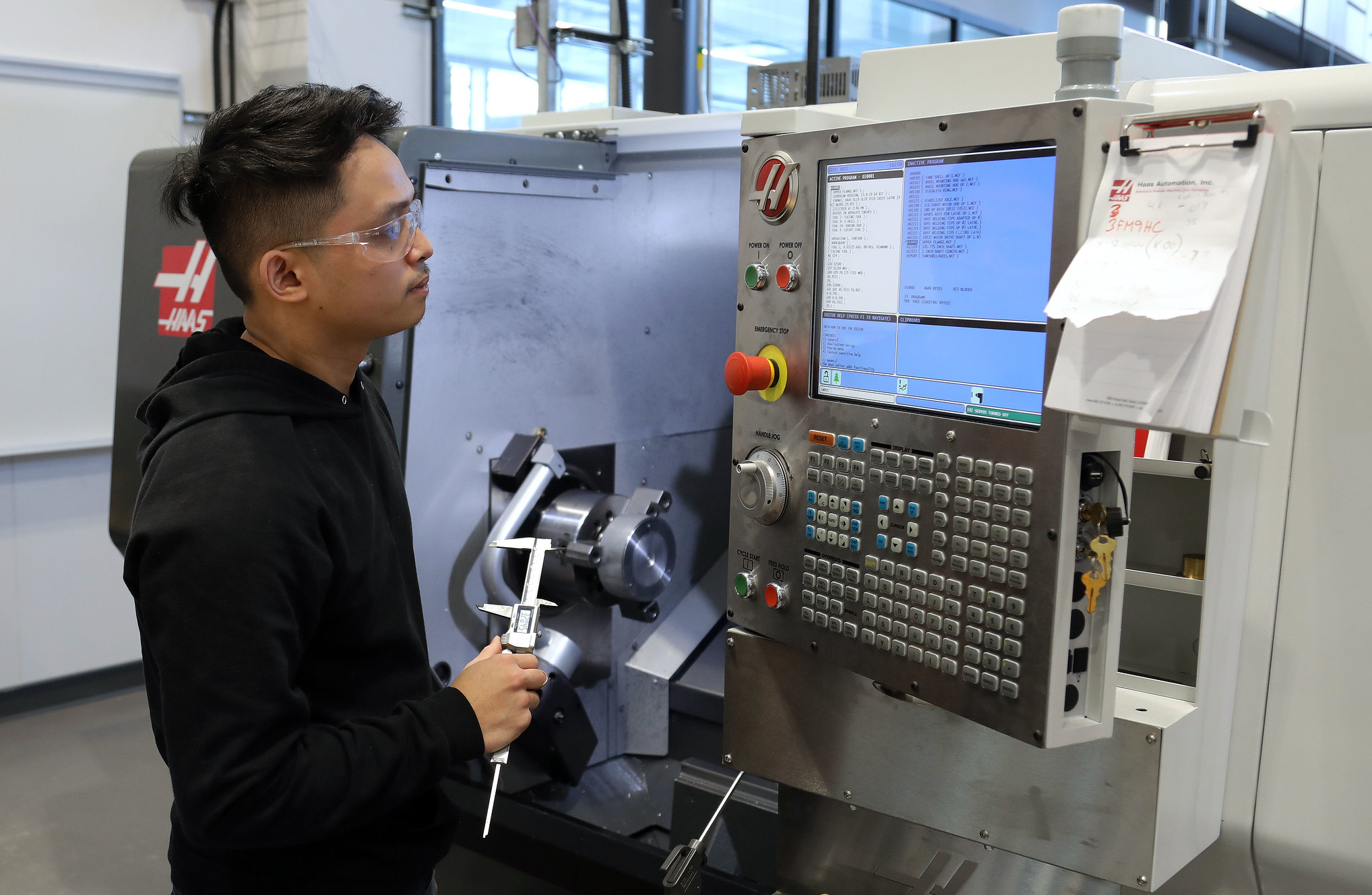
Apprentice CNC machinists help programme and operate machine tools that cut, shape, drill, and polish metal and other materials to produce precision engineering components. A CNC machine is used for precision cutting. This involves typing instructions onto a computer panel.
Responsibilities
Throughout your apprenticeship, you may help:
- programme the CNC machine tool with data from technical drawings
- work out the most efficient order to carry out machining tasks
- choose the right tools for each stage and operate the machine
- set the cutting speeds and tolerance levels
- check that work meets quality and technical standards and maintain equipment.
Salary
- The starting salary for apprentice CNC machinists is normally around £17,000 a year.
- With experience this can rise to £21,000 to £25,000 a year.
- Senior machinists may earn up to over £40,000 a year. Bonuses and extra pay for shift work are common.
Working hours
You will typically work 42 to 44 hours per week, including evenings and weekends on shifts.
Working environment
- You would work in a factory or workshop.
- Working conditions can vary from clean and quiet to dirty and noisy depending on what you are making.
- You have to stand for long periods of time and you have to take care to avoid accidents with the machines.
- You would normally wear overalls and protective glasses, gloves, ear defenders and safety shoes.
Qualifications
Qualifications you can achieve as an apprentice CNC machinist include:
- Level 3 Machining Technician – Entry requirements for this level include 5 GCSEs at grades 9 to 4 (A* to C), or equivalent, including English and maths, for an advanced apprenticeship. This qualification will take 42 months to complete.
Skills
On a CNC machinist apprenticeship, you’ll learn:
- knowledge of engineering science and technology
- to be thorough and pay attention to detail
- the ability to use, repair and maintain machines and tools
- maths knowledge
- the ability to work on your own
- knowledge of manufacturing production and processes
- analytical thinking skills
- design skills and knowledge
- to be able to use a computer and the main software packages competently.
Career path and progression
With experience and further training, you could move into a supervisory role.
You could also move into quality inspection or become an engineering technician.
